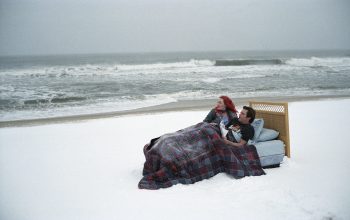Steven Spielberg has succeeded in bringing Tintin from the comic book page to the big screen but the result is hampered by inconsistencies and a questionable art style.
The film commences with a jarring series of coincidences, accidents and chance meetings which throw Tintin into the middle of a centuries-old mystery concerning the lost cargo of a ship, The Unicorn, which in turn is tied up with the family of the drunken Captain Haddock.
The film takes well over half its 90 minute running time to explain the plot but there is no introduction of Tintin’s character to inform us why we should care about him beyond the fact he is the titular character. There is no good reason why the main character couldn’t have been fleshed out a little more prior to the plot picking up steam.
The art direction suffers from too many good ideas colliding. A clear decision was made to ensure the look of the film would hark back to scenes in the comic books, while through the use of CGI everything is made to look more realistic.
In a few particularly memorable sequences this leads to fantastical sights as boats crash over desert dunes, flaming man-o-wars battle on the high seas and a bi-plane navigates between bolts of lightning.
However these moments are few and far between, and for the majority of the film we are left with grotesquely disproportioned characters moving through environments which border on the photo-realistic. All effort has been made to make Tintin look like a real man, while Haddock and the Thompson twins look like three-dimensional versions of their comic book selves.
Simply put, it does not look right, and scenes where these bulbous and comical features appear out of the shadows are more eerie than successful in conveying the drama intended.
The inconsistencies persist beyond the visual style into the story. It is difficult to reconcile the peril Tintin is in as gunfire whizzes past his head, while Haddock shakes off a lightning bolt seemingly no worse for wear.
There is no question that the film is a good natured bit of fun, but it does not seem to be sure of what sort of fun it is. Are we watching an easily approachable and engaging mystery which drags the characters across the globe or are we watching a slap-stick comedy adventure?
Where the film shows its strengths is in the quality of the voice work. While the cast list includes cinematic heavyweights Daniel Craig and Andy Serkis, as well as comedy duo Simon Pegg and Nick Frost, none of them draw you out of the film by being acoustically identifiable. They commit entirely to their character personas, be it the gruff Scottish Captain Haddock or the bumbling detectives from Scotland Yard.
The Tintin franchise is one that could just as easily have faded into the past than been saved and given a new lease on life. Spielberg’s long held hope of bringing the plucky journalist’s adventures to the big screen has introduced it to a new generation who may never have known the source material. There is significant room for improvement but for the most part it delivers a short, family-friendly tale of adventure.




